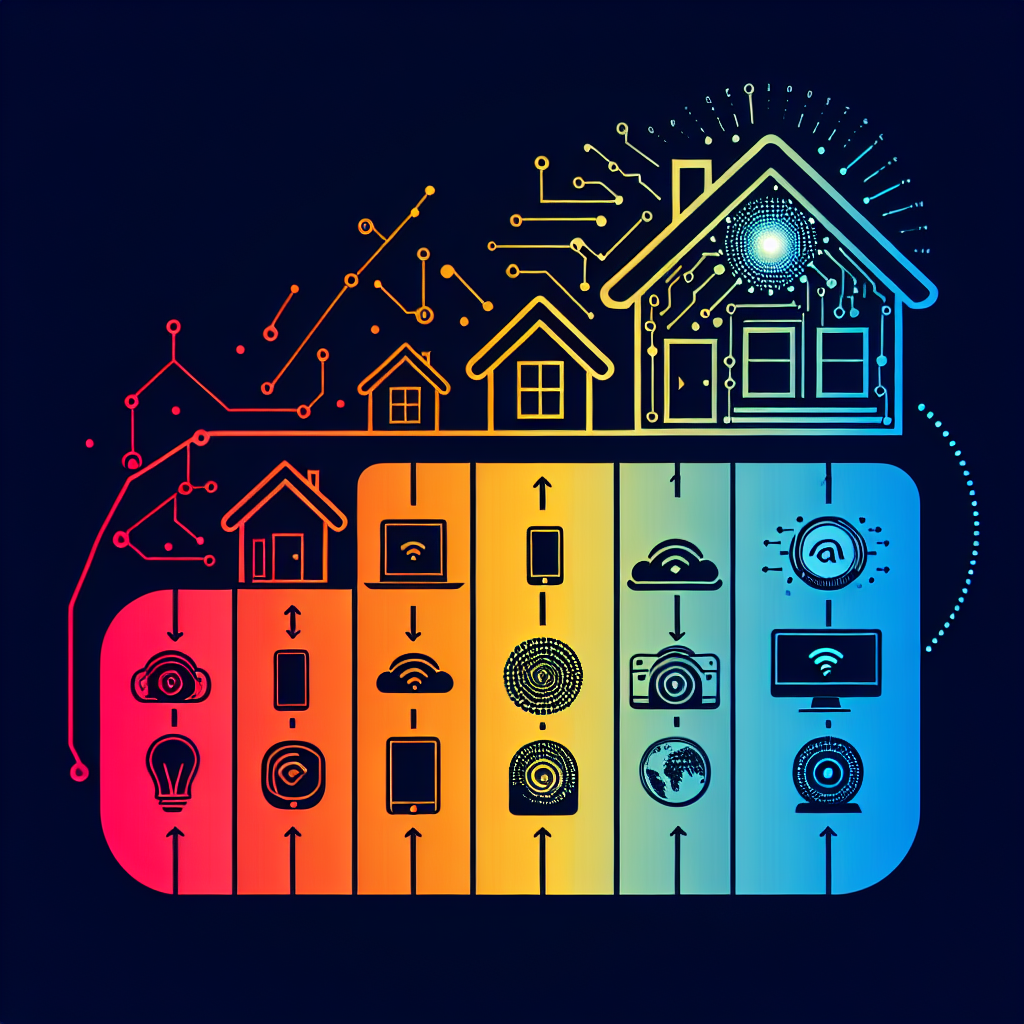The Evolution of AI Software in Smart Homes
Smart homes have been revolutionizing the way we live for many years now, but one of the most exciting advancements in recent years has been the integration of AI software into these systems. Artificial Intelligence, or AI, has the ability to learn and adapt to our behaviors, making our homes more efficient, convenient, and secure. In this article, we will explore the evolution of AI software in smart homes, how it has changed the way we interact with our living spaces, and what the future holds for this exciting technology.
The Beginnings of AI in Smart Homes
The concept of AI in smart homes is not new, but in the past, the technology was limited in its capabilities. Early smart home systems relied on simple programming and rules to control devices and respond to user commands. While these systems were a step in the right direction, they lacked the ability to learn and adapt to the needs and preferences of individual users.
In recent years, advancements in AI technology have allowed for more sophisticated and intuitive smart home systems. Companies like Amazon, Google, and Apple have introduced AI-powered virtual assistants like Alexa, Google Assistant, and Siri, which can control smart home devices, answer questions, and even anticipate users’ needs. These virtual assistants use machine learning algorithms to analyze data and improve their performance over time, making them more helpful and efficient.
The Benefits of AI in Smart Homes
The integration of AI software into smart homes has brought a host of benefits to users. One of the most significant advantages of AI in smart homes is its ability to automate tasks and make our lives more convenient. For example, AI-powered virtual assistants can turn off lights, adjust the thermostat, and lock doors with a simple voice command, saving users time and effort.
AI software can also help users save energy and reduce utility costs by analyzing patterns in energy usage and recommending ways to optimize energy consumption. By learning users’ habits and preferences, AI systems can adjust settings automatically to maximize energy efficiency without sacrificing comfort.
In addition to convenience and energy savings, AI software can also enhance home security. Smart home security systems equipped with AI technology can detect unusual activity, such as unauthorized access or suspicious behavior, and alert users or authorities. These systems can also learn to recognize familiar faces and distinguish between family members, friends, and strangers, providing an added layer of security and peace of mind.
The Future of AI in Smart Homes
As AI technology continues to evolve, the possibilities for smart homes are endless. One exciting development on the horizon is the integration of AI-powered robotics into smart home systems. Robots equipped with AI software can perform a variety of tasks, such as cleaning, cooking, and even providing companionship to users. These robots can learn from their interactions with users and adapt to their preferences, making them valuable additions to any smart home.
Another promising advancement in AI technology is the use of predictive analytics to anticipate users’ needs and preferences. By analyzing data from smart home devices and sensors, AI systems can predict when users will be home, what temperature they prefer, and even what they might want for dinner. This predictive capability can make smart homes more intuitive and responsive, creating a truly personalized and seamless living experience.
FAQs
Q: Is AI software in smart homes secure?
A: AI software in smart homes is designed with security in mind, and companies take measures to protect users’ data and privacy. However, it is essential for users to follow best practices for securing their smart home devices, such as using strong passwords, keeping software up to date, and being cautious about sharing personal information.
Q: How does AI software learn and adapt to users’ preferences?
A: AI software in smart homes uses machine learning algorithms to analyze data from sensors, devices, and user interactions. By processing this data, AI systems can learn users’ habits, preferences, and behaviors and adjust settings accordingly. Over time, AI software becomes more accurate and efficient in responding to users’ needs.
Q: Can AI software in smart homes be customized to individual users?
A: Yes, AI software in smart homes can be customized to individual users by learning their habits, preferences, and routines. Users can also adjust settings and preferences manually to personalize their smart home experience further.
Q: What are the privacy implications of using AI in smart homes?
A: While AI technology in smart homes offers many benefits, it also raises concerns about privacy and data security. Users should be aware of the information collected by AI systems and how it is used. It is essential to read privacy policies, understand data sharing practices, and take steps to protect personal information.
In conclusion, the integration of AI software into smart homes has transformed the way we interact with our living spaces, making them more efficient, convenient, and secure. As AI technology continues to evolve, the possibilities for smart homes are endless, with advancements in robotics, predictive analytics, and personalized experiences on the horizon. By embracing AI in smart homes, users can enjoy a more intuitive, responsive, and personalized living environment.

